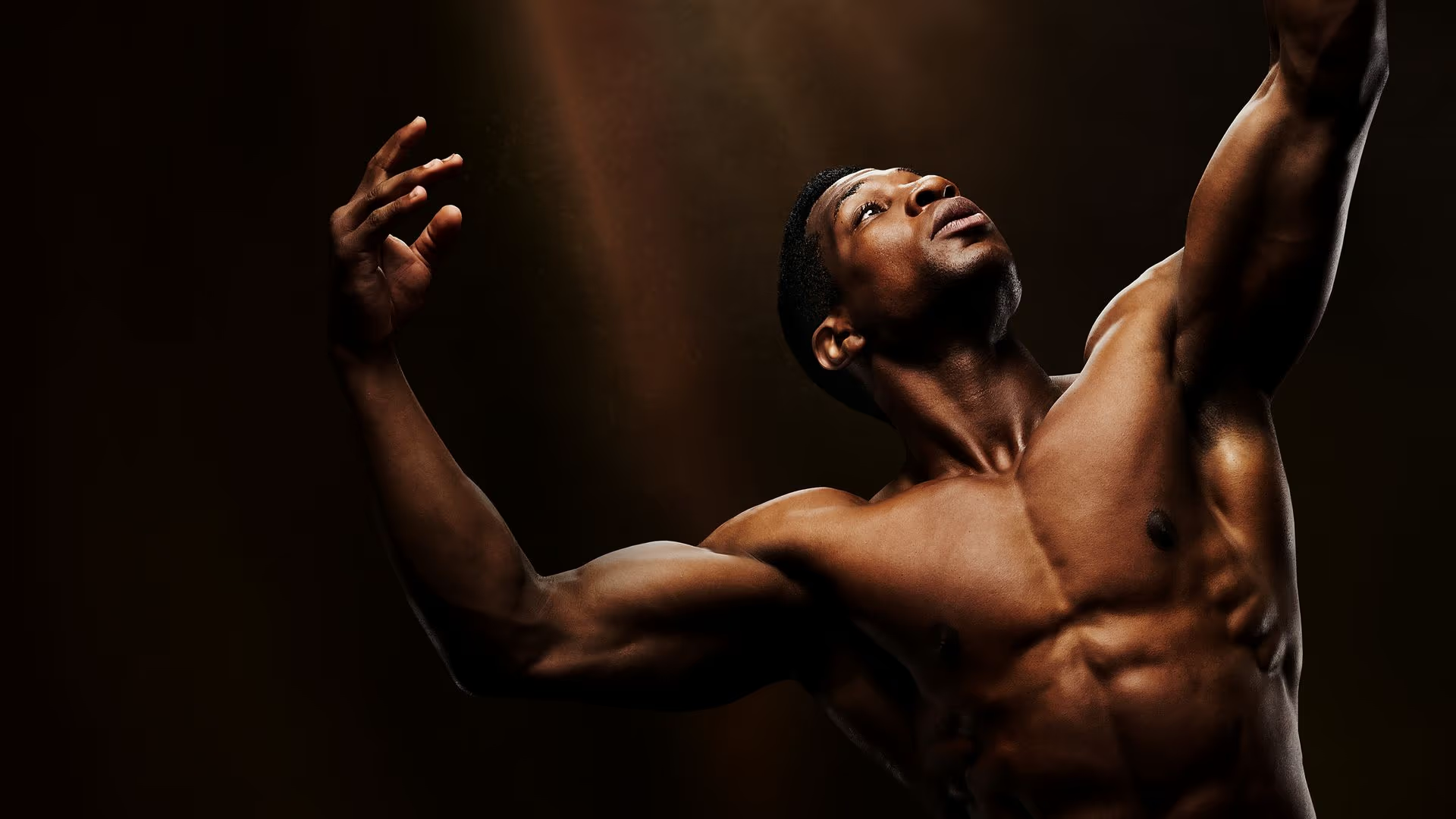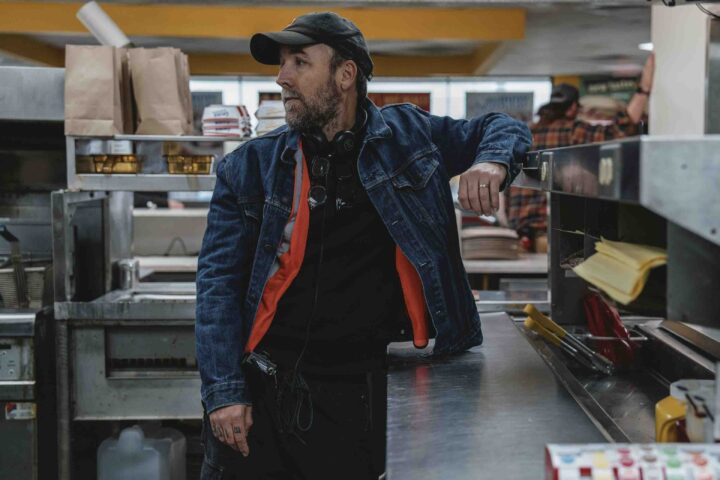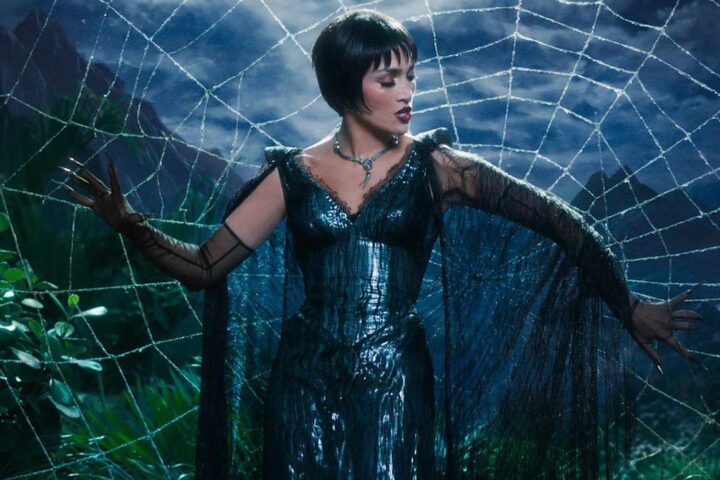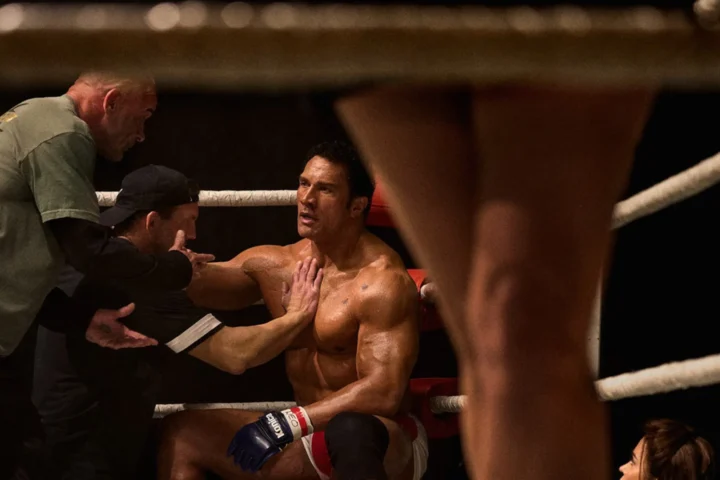There won’t be a better movie performance this year than Jonathan Majors’ work in Magazine Dreams, the beleaguered indie that captured the 2023 Sundance Jury Prize and was headed for awards season consideration—that is, until Majors’ subsequent, high-profile domestic assault arrest and misdemeanor conviction saw his once-meteoric career instantly crater. Now, two years after initial distributor Searchlight acquired—and then swiftly dumped—the picture, indie outfit Briarcliff Entertainment (which also rescued the hot-button exposé The Apprentice amidst a Trump cease and desist) is finally bringing the richly deserving drama to theaters.
But the jury is still out on whether audiences will climb aboard Majors’ career rehabilitation (they should), and it remains to be seen whether the Yale School of Drama grad, who broke out in The Last Black Man in San Francisco, Creed III and Devotion, is yet “back.” But what must be seen is his galvanic Magazine Dreams portrait of a lonely bodybuilder consumed by ‘roid rage and profound emotional wounds, a ticking time bomb of testosterone and hurt.
Writer-director Elijah Bynum’s (Hot Summer Nights) second feature is a hothouse character study burning with pain and intensity, Majors starring as a troubled Los Angeles loner, the exotically named Killian Maddox, so painfully hopped up on juice and insecurity that when we first meet him he positively seethes with agitation; even posing on stage in a local muscle contest awakens a confrontational beast. In competition his ultra-ripped physique is never quite good enough to land him a trophy or the superstardom he desperately desires, and in a running internal monologue he laments that, “You have to do something big and important or no one will remember you when you’re dead. They’ll put a picture of me on the cover of the magazines and then everyone will know Killian Maddox was here.”
Killian lives with his aged and dependent grandfather (Harrison Page), a soft-spoken Vietnam vet who raised him after his parents’ traumatic murder-suicide, and slavishly pumps in thousands of calories a day (he’ll order a dozen entrees in a local restaurant) while pushes weights at the local sweatbox gym. Otherwise, he’s locked away in a bedroom adorned with bodybuilding paraphernalia, including a shrine to idol and muscle god champion Brad Vanderhorn (Mike O’Hearn), to whom he writes increasingly obsessive letters, imagining a burgeoning friendship.
Killian also works part-time at the local grocery store, where he develops a crush on a sweet checker named Jessie (Haley Bennet), who naively takes a liking to him, only to be taken aback, to put it mildly, during a disastrous dinner date lifted directly out of Martin Scorsese’s Taxi Driver, in which Robert DeNiro’s alienated Vietnam vet Travis Bickle courted Cybill Shepherd’s dream girl political volunteer at a Times Square porno movie house. Adding to his confusion, he can’t even navigate an encounter with a pretty prostitute (Zola’s Taylour Page) without courting disaster. Like Travis, Killian is ill-equipped to integrate into the social fabric of the outside world.
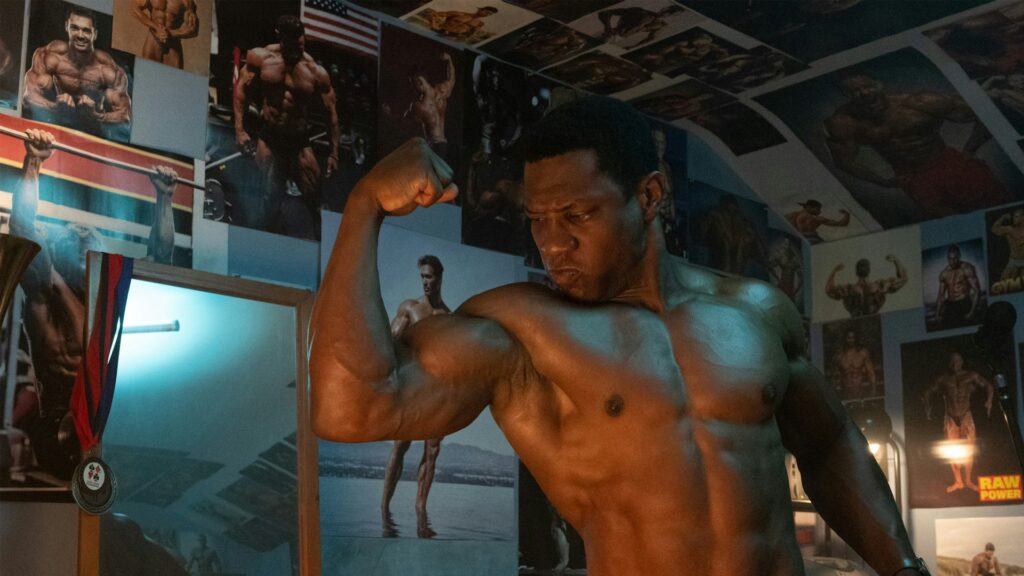
That world is one in which, as he tells his grandfather, “they kick me down but I keep getting back up and up and up.” But what happens when you’re going nowhere and no one cares? While his Google searches reveal painful queries like “How do you make people like you?”, he rebuffs the patient counselor (appointed after he issues death threats to hospital nurses) who suggests he make emotional connections. For Killian, his obsession with validation though physique and inability to gain social acceptance become a festering cocktail about which Bynum’s screenplay isn’t coy—this is the modern vernacular of the incel, plumbing a dark rabbit hole: “There are thought in my head I have no one to talk to about” he confesses, but only to himself.
When he does talk he gets into trouble, and a disagreement with a local paint shop leads to a catastrophic chain reaction providing the film one of its most powerful scenes, as Killian takes the competition stage after a brutal three-on-one beating. Majors’ performance in this moment, covered in bruises, striking the requisite contest poses and gritting a blood-streaked smile while on the verge of collapse, is astonishingly, potently heartbreaking. Ditto his hospital bed reaction to the discovery of prolific liver tumors, and his rejection of surgery: “Bodybuilders can’t have scars.” In another riveting moment Killian confronts a nemesis in a crowded local diner, intimidating the man’s young children into abject terror; Majors simultaneously intimidates and engenders deep empathy.
But once Killian meets the man of his dreams—brawny adonis superstar Brad Vanderhorn—the movie becomes pure razor’s edge tension, Bynum impressively shifting his film from realistic introspection to overheated, almost surreal subjectivity in a color-saturated fantasy merger of painful past and violent present, recalling how Scorsese lensed a feverish Manhattan as cabbie Bickle lost his own grip on sanity. This narrative and stylistic turn suggests the vernacular of the great Paul Schrader, who wrote Taxi Driver and many a picture exploring the descent of “God’s lonely man” and his “dark night of the soul.” At this point, Magazine Dreams moves toward what appears to be an inexorable tragedy, Killian striking out to “be bold and change history,” perhaps in the way so many modern manifestos tend to reveal. But will his sought-after legacy be fame or infamy?
Majors uses every tool he’s got (including the bravado he brought to Marvel’s Ant-Man and the Wasp: Quantumania villain) to essay a man for whom life has been little more than a raw deal, and it is the type of work that demands an actor’s all—he was on a six-thousand calorie per day diet, training 6 hours a day in the gym for months to convincingly render his character’s cruelly strenuous routines—and what is onscreen is a performance of titanic intensity, sensitivity and authority. With any luck his fierce commitment to Magazine Dreams will permanently cement his status as the best actor of his generation. He’s that good.
Magazine Dreams can sometimes feel like what is called a “tough sit,” Bynum not pulling punches in his searing portrait of a character invisible to the world and for whom life is an endless series of painful disappointments. Late in the film, Killian declares “I’m just tired. I’m sick.” But unlike Travis Bickle, who assailed sickness on the outside and meted violent retribution as a corrective to social ills, Killian is a character so painfully inside himself that the direction of his aggression, unlike Travis, points inward. Witnessing Majors’ compassionate performance you can’t help but vicariously hope for Killian’s healing.
Highly recommended.
3 1/2 stars
